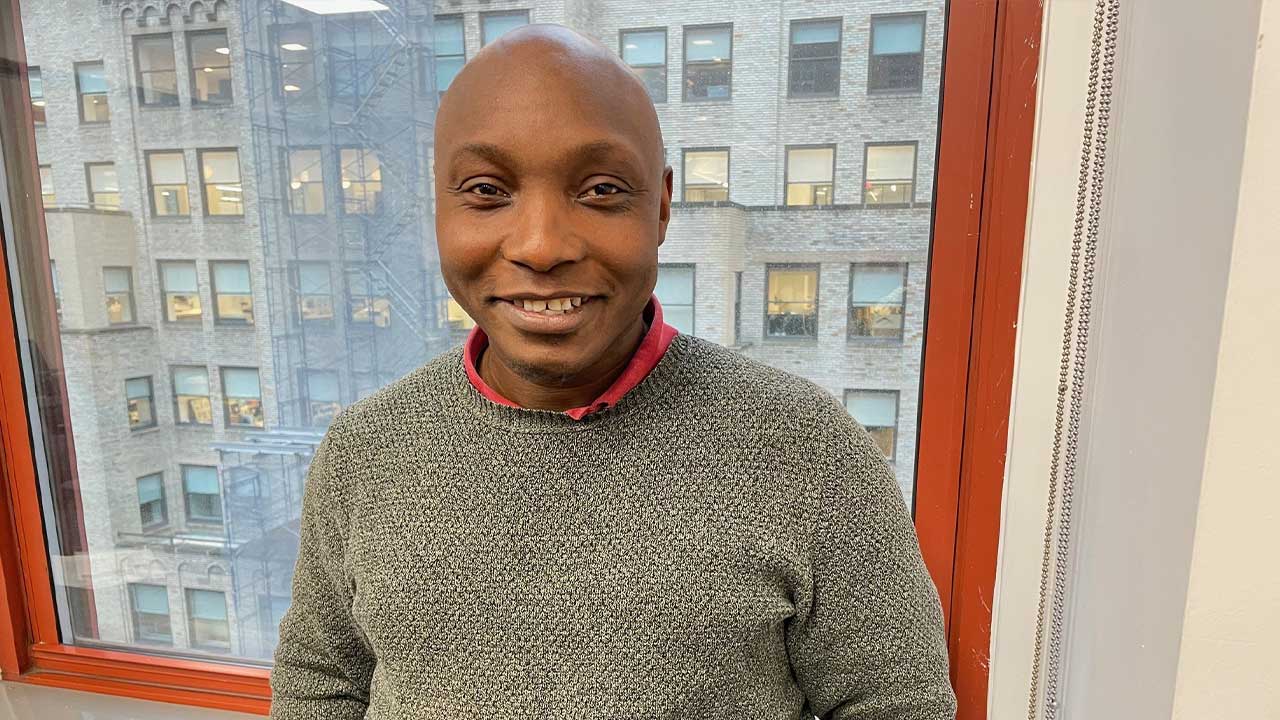Associate Professor of Urban Studies Kafui Attoh is the longest-serving professor in his department. In 2013 he joined the Joseph S. Murphy Institute (which became SLU in 2018) after receiving his Ph.D. in geography at Syracuse. Before that, he double-majored in geography and Spanish as an undergraduate at Macalester College in Minnesota. Attoh spent the first part of his youth in Holland, Michigan, but identifies as being from Ithaca, New York, where both of his parents were professors at Cornell University — his mother in history and his father in geology.
His scholarship focuses on transportation as well as the Right to the City movement. Attoh’s published books are Rights in Transit: Public Transportation and the Right to the City in California’s East Bay and Disrupting D.C.: The Rise of Uber and the Fall of the City (co-authored with Katie J. Wells and Declan Cullen).
Attoh, 42, lives in Poughkeepsie with his partner Angela and their dog Nala. He enjoys biking, playing squash, and listening to jazz, which you may find him doing (on compact disc!) in his office on the 18th floor. Attoh’s father was from Ghana, and the name Kafui (pronounced KAFF-wee) means “Praise Him” in the Ewe language.
Why Urban Studies?
It’s interesting because I live in a small city. I grew up in a small city. I don’t live in New York City. I kind of like smaller towns, smaller cities, but I’ve always been drawn to urban life. Why the Urban Studies department? I applied to the job. I applied to tons of other jobs; some of them were not Urban Studies departments.
What made you a professor?
I’m kind of just doing what my parents did, which comes with its own benefits. They know the industry, so I could talk to them about it.
What’s fascinating right now in your field?
Being here, I get students who want to talk about local issues like congestion pricing. In many ways, I think congestion pricing is an obvious positive thing … but any transportation policy is going to have winners and losers, and you’re going to have proponents and opponents, based on how they understand the impact.
A policy win is not necessarily a political win and a political win is not necessarily a policy win. I feel like congestion pricing is caught up in something like that. Kathy Hochul switched from being an adamant opponent of congestion pricing to pushing it forward after Trump was elected. It’s not like the policy was altered that much. What happened was the political landscape changed.
What do you find special about SLU?
The school is very unique. It brings together the labor question with the urban question. Both in terms of our public programming and in terms of our classes, you get this kind of positive synergy or cross-pollination, which is cool. I’ve learned a lot about the labor movement. In fact, now it’s part of my own research. My first book had a significant section about the history of the Amalgamated Transit Union in Oakland, and I’m not sure I would have pursued that if I wasn’t here.
What do you find special about SLU students?
I love teaching here. Because I live in Poughkeepsie, and I’m friends with faculty at Vassar College, there are times I’ve given a guest lecture or visited classes to talk. And so I’ve had a chance to interact with more traditional-aged college students at a very elite institution, and I do not envy the professors there.
There have been times when I’ve given a guest lecture and I’m trying to get some sort of engagement and it can be actually quite difficult. Sometimes I think it’s due to a kind of general fear of being wrong. To get into some of these schools, you just have to do the right thing consistently, say the right thing. So there’s a kind of hesitancy to think out loud about an idea that’s new and to talk through it in a public forum.
Here that is never a problem. People are more than happy to say whatever, and to put it all out there and to draw on their life experience as evidence. Having rich, exciting, interesting conversations is never an issue here. You don’t have to struggle to get students to speak, because they’ve made a choice to come back to school, they’re thinking all the time about stuff and life. In some cases, it’s the first time they have real time to think and write, and so they take advantage of it, and they just want to engage, and they want you to engage their ideas, and to be heard.
What do you want students to get out of your classes?
I’d like them to come out with more confidence than they came in with, both with respect to the topic area, but then also with respect to their own ability to communicate on the topic as well as on their own life. A lot of students have a sense of who they are, but what they don’t have — which a lot of people struggle with — is understanding how their individual struggles or individual experiences connect with these broader economic and social processes. Where and how can I intervene to shape my life, to direct it, instead of being batted around or jumping from one thing to another. Having some sense of how the world operates: here’s what’s possible, here’s how I can intervene, here’s how I can make my life or the life of my community better. That all requires understanding how cities work, how the world works.
Books I recommend:
An off-the-top-of-the-head list:
Fiction:
This Earth of Mankind, by Pramoedya Ananta Toer
The first book in the Buru Quartet.
Ties, by Dominic Starnone.
Nonfiction:
Dynamite: The Story of Class Violence in America, by Louis Adamic

